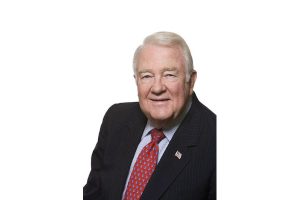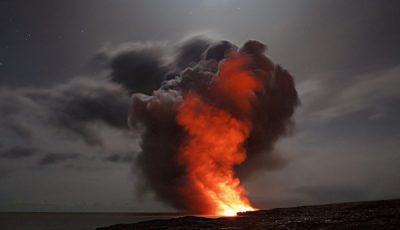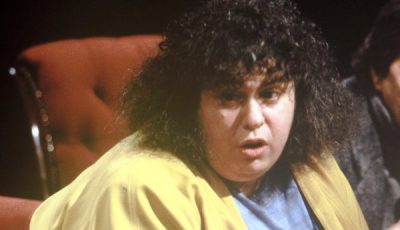Edwin Meese: The Man Behind the Commission
 Editor’s Note: This post is the fourth in a series by YNOT’s LynseyG that gives an overview of the history of anti-porn sentiment in America. Part one provided an overview, part two covered anti-porn crusader Charles Keating and part three examined the role of feminist author Andrea Dworkin in the American anti-porn movement.
Editor’s Note: This post is the fourth in a series by YNOT’s LynseyG that gives an overview of the history of anti-porn sentiment in America. Part one provided an overview, part two covered anti-porn crusader Charles Keating and part three examined the role of feminist author Andrea Dworkin in the American anti-porn movement.
As I continue to learn about the delightful folks who have dragged the porn industry through the mud over the years, I would be remiss not to include those twin pillars of conservatism in the 1980s: Ronald Reagan and Edwin Meese.
In a surprising twist to the previous two figures I’ve profiled—Charles Keating and Andrea Dworkin—neither Reagan nor Meese were particularly concerned about pornography. Rather, Reagan won his eight years in the White House because he’d courted the religious right, and they were (and still are) rabidly opposed to smut. That meant that, to appeal to his base, Reagan had to show that he was willing to do something about commercial sex performances.
In 1984, after codifying child pornography as a crime unto itself—something that everyone could agree on—Reagan announced that he was targeting adult smut next: “In the last several years, distributors of obscenity and child pornography have expanded into new areas, employing new technologies, and reaching new audiences,” he said, casually neglecting to define what he defined as obscenity. “Neither our Constitution, our courts, our people, nor our respect for common decency and human suffering will allow this trafficking in obscene material—which exploits women, children, and men alike—to continue.”
The following year, Reagan convened the Attorney General’s Commission Pornography, commonly known as the Meese Commission because he placed one of closest confidants, counsellors, and political allies—Attorney General Edwin Meese—at its head. Like Reagan, Edwin Meese wasn’t an anti-porn crusader, but he was a loyal friend to President Reagan. And, because Reagan needed to condemn porn to appease his base, Meese set to work.
He selected eleven cohorts to round out the committee, which swiftly became a rogue’s gallery of anti-porn enthusiasts. Henry E. Hudson, the commission’s chairman, had “ led a campaign to rid Arlington County of adult bookstores, massage parlors, and other venues linked to the sale of pornography” during his time as Virginia’s Commonwealth Attorney in the 1970s, according to the Rialto Report. Diane D. Cusack was a churchgoing politician from Arizona who “believed that pornography had the power to undermine the social fabric and favored vigorous prosecution.” And Park Elliott Dietz, a psychiatrist, wrote in his commission statements that “exposure to violent pornography leads to measurable, negative changes in the content of sexual fantasies, attitudes toward women, attitudes toward rape, and aggressive behavior within the experimental setting”—none of which was borne out by subsequent or contemporary scientific study. And who could forget Alan Sears, who wrote the 2003 book, The Homosexual Agenda, which the Southern Poverty Law Center called “an anti-LGBT call to arms that links homosexuality to pedophilia”?
James Dobson was an evangelical Christian zealot who founded Focus on the Family—a Christian fundamentalist organization that, as Wikipedia’s summary puts it, “promotes creationism, abstinence-only sex education, adoption only by heterosexuals, school prayer, and traditional gender roles…opposes pre-marital sex, pornography, drugs, gambling, divorce, and abortion… [and] lobbies against LGBT rights.”
But perhaps the standout committee member was Father Bruce Ritter, the Catholic priest and former Franciscan monk who founded Covenant House—a non-profit shelter for homeless and runaway youth. But, in 1990, Ritter was forced to resign from his own organization after a tidal wave of allegations that he had sexually abused the homeless children under his care. Wikipedia calls Ritter’s case “one of the most widely publicized cases of sexual abuse within the Catholic Church.”
Meese also named a few moderate members to his committee for cosmetic purposes—like Frederick Schauer, Judith V. Becker, and Ellen Levine. But the commission’s stated objective—to “determine the nature, extent, and impact on society of pornography in the United States,” and, more tellingly, “to make specific recommendations to the Attorney General concerning more effective ways in which the spread of pornography could be contained, consistent with constitutional guarantees”—belied the group’s feints at neutrality on the issue of pornography.
The commission was given a paltry budget of half a million dollars and about a year to conduct its business, which meant that it couldn’t conduct its own research. Instead, it had to rely on the work of others—and to cherry-pick that research. It called upon over 200 experts and witnesses to testify about the impact of pornography—experts like none other than our old friend Andrea Dworkin, whose impassioned anti-porn testimony so impressed the commission that it was reprinted in their final report. Testimony from the venerable Veronica Vera, given the previous year before Arlen Specter’s judiciary subcommittee on pornography, was also included as a cautionary tale, as was that of Bill Margold. The commission also reportedly viewed pornographic videos, read adult magazines, recorded phone sex conversations, and even visited sex shops—in the name of research, of course.
But their methods were far from rigorous. The commission conflated pornography and obscenity, then preemptively informed several chains of retail stores that “they had been accused of the sale or distribution of pornography and that if they didn’t take action to correct the practice, it would be seen as an admission of guilt,” according to the Rialto Report. (Hugh Hefner vociferously disagreed with this tactic and sued—a federal judge agreed that the commission had contravened the First Amendment.)
In the end, the nearly 1,500-page Meese Report, as it’s known, “asserted plainly that pornography inflicted damage on society, drawing a connection between pornography and violence,” the Rialto Report concludes. It recommended a slew of governmental actions, such as making the hiring of adult performers “an unfair labor practice,” seizing the profits and property of “convicted dealers” of pornography, and, oddly, “outlawing doors on booths in porno parlors.” (Video from the commission’s press conference at the time of the report’s release, as well as the full report itself, can both be found at the Rialto Report.)
Commission members Judith V. Becker and Ellen Levine dissented from these conclusions, writing that the research conducted had been biased against pornographic expression. And social scientists, along with many who value the freedom of expression, loudly objected to the report. But Attorney General Meese nevertheless enacted several of the commission’s recommendations, including establishing a National Obscenity Enforcement Unit to assist U.S. attorneys in investigating and, hopefully, prosecuting pornographers. And—inaccurate, biased, and cherry-picked as it may be—the Meese Report’s largely erroneous findings continue to influence the cultural dialogue and political stances around pornography in America to this day.
It’s interesting to note that, as I’ve stated, Edwin Meese was not himself an anti-porn crusader, yet his work to dismantle pornography in America has had a lasting effect on the American psyche. It’s also worth noting here that, just like his predecessor Charles Keating, who aggressively pursued an anti-porn agenda at the behest of President Nixon in 1969, Meese was later embroiled in scandals aplenty. These scandals ranged from financial impropriety to ethics violations concerning “ethical lapses” in foreign policy and “blindness to abuse of position” when he tried to cover up his own actions to protect President Reagan. He was never convicted of wrongdoing, unlike Keating, but he did resign as attorney general in 1988, when a report on his actions in a financial scandal was delivered. Funny, isn’t it, how his ethical transgressions were enough to force his resignation from one of the most powerful political appointments in the world, but nobody seemed to mind that his ethics around the commission were highly suspect?
Not to worry, though. Edwin Meese won back his honor, in a way. After Meese served on President Donald Trump’s transition team when he took the White House, Trump awarded Meese the Presidential Medal of Freedom, the highest civilian honor in the United States, in 2019… for no apparent reason.
Photo of Edwin Meese by The Heritage Foundation, licensed under Creative Commons Attribution-Share Alike 2.0 Generic license. It has been scaled down and modified to expand the width of the background.













